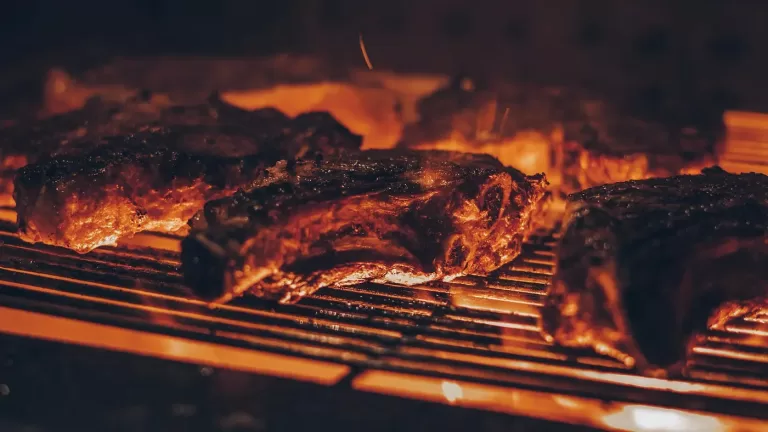
Understanding the Keto and Carnivore Diets
This page may contain affiliate links. If you choose to purchase after clicking a link, I may receive a commission at no extra cost to you.
Pathways to Weight Loss and Optimum Health
In recent years, the Keto and Carnivore diets have become incredibly popular among those looking to lose weight and improve their overall health. While they share some similarities, they are distinct in many ways and can be powerful tools for achieving weight loss and enhancing your wellbeing. In this article, we’ll explore what the Keto and Carnivore diets are, how they work, and the unique benefits each offers for weight loss and optimal health.
What is the Keto Diet?
The Ketogenic Diet (or Keto) is a high-fat, moderate-protein, and low-carbohydrate diet that shifts your body from burning glucose (sugar) for energy to burning fats. This process is called ketosis. When carbohydrate intake is reduced drastically, your body starts using fats as its primary fuel source by converting them into ketones, which are produced in the liver. These ketones are then used as an energy source by the brain, muscles, and other tissues.
The typical macronutrient breakdown for a keto diet looks like this:
- 70-80% of calories from fats
- 15-25% of calories from proteins
- 5-10% of calories from carbohydrates
What is the Carnivore Diet?
On the other hand, the Carnivore Diet is a more extreme version of low-carb eating. As the name suggests, this diet consists almost entirely of animal-based foods, including meat, fish, eggs, and certain animal fats. It eliminates all plant-based foods, including fruits, vegetables, grains, and legumes.
Where keto allows for a small number of carbs from low-carb vegetables and certain fruits, the carnivore diet excludes all plant matter, focusing solely on animal products. This all-meat diet is essentially a zero-carb diet, which can offer a more straightforward way of eating and potentially quicker fat loss due to its simplicity and extreme carbohydrate restriction.
How Keto and Carnivore Diets Support Weight Loss
1. Promotes Fat Burning
Both the keto and carnivore diets drastically reduce carbohydrate intake, forcing your body to rely on fats as its main energy source. By limiting carbohydrates, these diets help reduce insulin levels. Insulin is the hormone responsible for storing fat. When insulin is low, your body is more likely to release stored fat to be burned for energy, leading to weight loss.
2. Reduces Hunger and Cravings
The high-fat content of both diets helps to regulate hunger hormones like ghrelin and leptin, making you feel fuller for longer periods of time. This effect is especially pronounced with the carnivore diet, where consuming high amounts of protein and fat can suppress hunger effectively. Many people report significantly reduced cravings for sugar and junk food, which are common pitfalls in traditional low-calorie diets.
3. Increases Metabolic Efficiency
The ketogenic diet improves the body’s metabolic efficiency by teaching it to switch from burning carbohydrates to burning fats. Over time, this flexibility in energy metabolism makes it easier to burn fat for energy, even when not strictly adhering to a diet. In the case of the carnivore diet, the absence of carbs makes your metabolism ultra-reliant on fat-burning, which can lead to more consistent and sustained fat loss.
4. Preserves Muscle Mass
Unlike many traditional low-calorie diets that can lead to muscle loss, both the keto and carnivore diets help preserve muscle mass. The moderate-to-high protein intake on these diets supports muscle maintenance, which is crucial for keeping your metabolism high and burning calories efficiently. In fact, many people on these diets find they can lose fat while maintaining or even gaining lean muscle, which further enhances fat-burning capacity.
Health Benefits Beyond Weight Loss
While weight loss is one of the main reasons people turn to keto and carnivore diets, the benefits extend far beyond the number on the scale. Both diets can have a profound impact on overall health and well-being.
1. Improved Mental Clarity and Focus
When your body shifts into ketosis, your brain uses ketones instead of glucose for energy. Many people on the keto diet report enhanced mental clarity, focus, and even improvements in memory and cognitive function. Since ketones are a more stable and efficient source of fuel than glucose, they can provide sustained energy for the brain, avoiding the spikes and crashes associated with blood sugar fluctuations.
Similarly, on the carnivore diet, the absence of plant-based carbs can lead to fewer blood sugar swings, promoting steady mental performance. The anti-inflammatory benefits of an all-animal diet may also support brain health.
2. Reduced Inflammation
Chronic inflammation is a root cause of many diseases, including heart disease, diabetes, and autoimmune conditions. Both the keto and carnivore diets have been shown to reduce markers of inflammation in the body.
The keto diet helps reduce inflammation by lowering insulin levels and providing anti-inflammatory ketones, while the carnivore diet eliminates common triggers of inflammation found in plant-based foods, such as lectins and oxalates. For individuals with autoimmune conditions, removing these triggers may result in fewer symptoms and better overall health.
3. Better Blood Sugar Control
For people with insulin resistance or type 2 diabetes, the keto and carnivore diets can be particularly beneficial. By reducing carbohydrate intake, these diets help to stabilize blood sugar levels and improve insulin sensitivity. Many people with diabetes have successfully reversed or significantly improved their condition by adopting a keto or carnivore approach.
Research has shown that keto can improve HbA1c (a marker of long-term blood sugar control) and may reduce or eliminate the need for diabetes medications. The carnivore diet, being essentially zero-carb, provides an even more drastic reduction in blood sugar fluctuations, making it an attractive option for those with severe insulin resistance.
4. Enhanced Cardiovascular Health
While both diets are high in fat, they can improve cardiovascular health when implemented correctly. On the keto diet, the focus on healthy fats like avocados, nuts, seeds, and olive oil can help raise HDL cholesterol (the “good” cholesterol) and lower triglycerides. Studies have also shown that ketogenic diets may reduce LDL cholesterol (the “bad” cholesterol) over time, especially when refined oils and processed foods are avoided.
The carnivore diet may also lead to improved heart health by lowering inflammation, improving insulin sensitivity, and stabilizing blood pressure. By eliminating processed foods, sugar, and refined oils, carnivore adherents often experience better blood lipid profiles.
Keto vs. Carnivore: Which Diet is Right for You?
Both diets offer powerful tools for weight loss and optimizing health, but the best choice depends on your individual goals, preferences, and tolerance levels.
- Keto Diet: If you want more flexibility and enjoy a variety of foods, the keto diet is a more sustainable option. It allows for a range of low-carb vegetables, fruits, and healthy fats while still providing the benefits of ketosis.
- Carnivore Diet: If you prefer simplicity, have food sensitivities, or want to experiment with an all-meat diet, the carnivore diet may be the better fit. It’s particularly effective for those looking for extreme weight loss or wanting to heal from autoimmune or inflammatory conditions.
Conclusion: Finding Your Path to Health
Both the keto and carnivore diets are effective strategies for weight loss and optimal health. By cutting out carbohydrates and focusing on nutrient-dense, satiating foods, these diets help to control hunger, burn fat, and provide a range of health benefits. Whether you choose keto for its flexibility or carnivore for its simplicity, adopting a low-carb lifestyle can unlock a healthier, more vibrant you.
Start experimenting, listen to your body, and find the diet that works best for your goals!








Leave a Comment